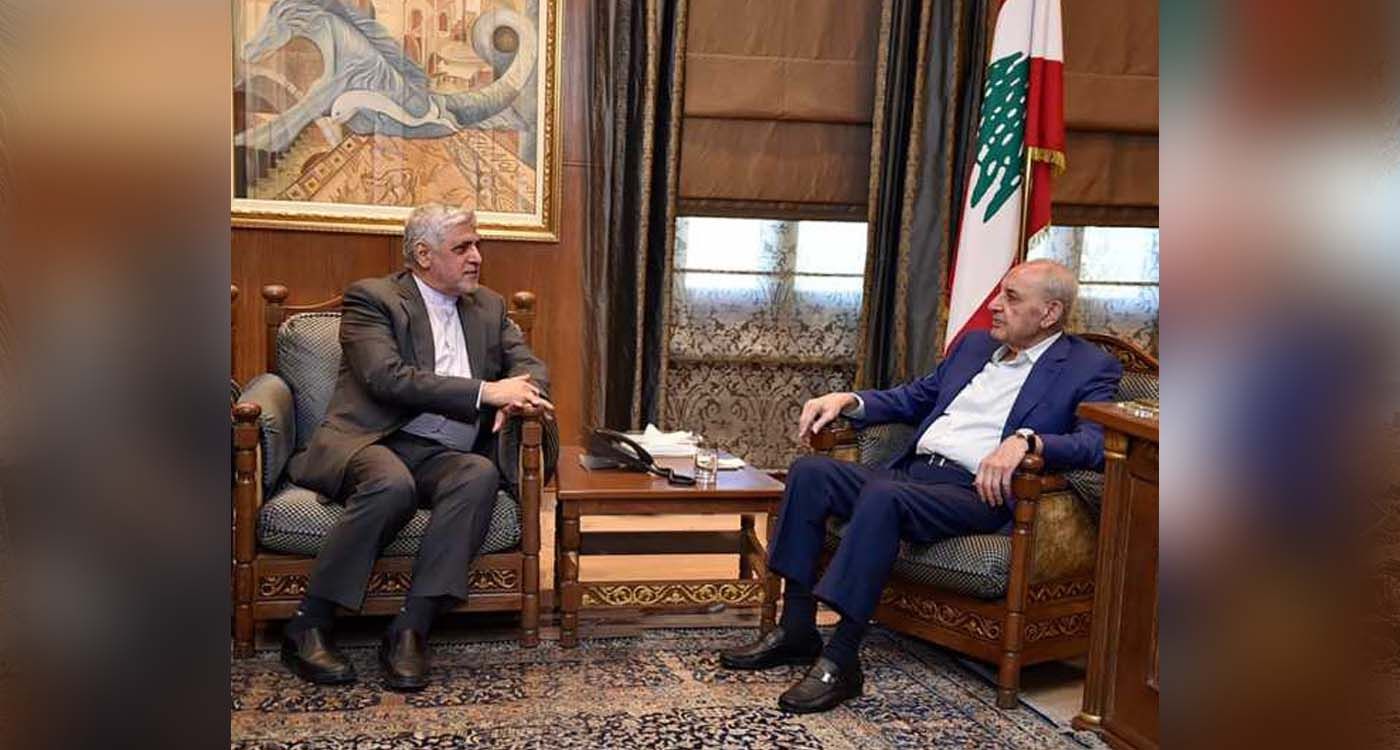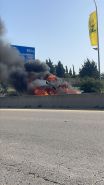
Iranian officials have never appeared in Lebanon as frequently as they do now, treating this country, long regarded by them as a “province” under Hezbollah’s influence, as a key outpost. Since Israel launched its extensive offensive against Lebanon on September 23, dismantling Hezbollah’s leadership, an uninterrupted procession of Iranian officials has arrived to "discuss" the situation on the ground with Lebanese officials. However, rumors suggest that since the Hezbollah leadership’s elimination, Tehran has assumed direct command of its military wing. The frequent visits of Iranian representatives to Beirut are seen as part of a strategy to manage the military conflict with Israel and the surrounding diplomatic activity.
On Friday, Parliament Speaker Nabih Berri received Mohammad Reza Chibani, special envoy of Iranian Foreign Minister Abbas Araghchi for Middle Eastern and West Asian affairs. According to official statements from Ain el-Tineh, their meeting covered “developments in Lebanon and the region in light of ongoing Israeli attacks on the country and the consequences of this aggression.”
Chibani, who also met with caretaker Minister of Culture Mohammad Mortada, was expected to share insights from Abbas Araghchi’s regional tour, which was aimed at supporting a "simultaneous" ceasefire in Lebanon and Gaza.
However, given the timing of Chibani’s visit, it is likely connected to Berri’s recent discussions with US envoy Amos Hochstein, who, along with Secretary of State Antony Blinken, has been working to end the conflict in Lebanon and Gaza. Hochstein's focus has been on the Lebanese aspect of the mission.
“We are working toward a definitive end to the ongoing military conflict,” Hochstein announced in Beirut. Later, in a televised interview, Berri mentioned an agreement with the US envoy on a "rigorous application of UN Security Council Resolution 1701, without amendments," implying deployment of the Lebanese Army alongside UNIFIL in South Lebanon, demilitarization of the area south of the Litani River, and Hezbollah’s withdrawal north of the river.” He also mentioned immediate political consultations following a ceasefire to elect a consensual president.
In a follow-up interview with Sky News Arabia on Thursday, Berri reiterated that the army would deploy in the southern region, affirming Lebanon's commitment to implementing Resolution 1701. He also echoed Lebanon's official desire for an “immediate” ceasefire, as several areas of the country continue to suffer destruction by Israeli military action, with the death toll surpassing a grim milestone of 2,500. Chibani reportedly discussed Hochstein’s mission with Berri, as well as Tel Aviv’s stance that Resolution 1701 alone no longer guarantees stability on its northern border.
Iran, while not commenting on US ceasefire efforts in Lebanon and Gaza, continues to encourage its allies to persist in the fight against Israel. On Thursday, following confirmation of the death of Hezbollah’s Executive Council President Hashem Safieddine in an Israeli raid on Beirut’s southern suburb, Iran's Supreme Leader Ali Khamenei sent a reassuring message to Hezbollah. He stated, “Hezbollah remains the most powerful defender of Lebanon and the strongest shield against Israeli ambitions to divide the country,” accusing Israel of “misrepresenting Hezbollah’s mission.” He advised against listening to Israeli claims, as Tel Aviv accuses Hezbollah of using Lebanese civilians as human shields and of spreading its arsenal in peaceful villages in southern Lebanon and the Bekaa. “Hezbollah,” Khamenei continued, “remains as active and effective as ever. The Islamic Republic will continue, as always, to support it and the resistance fighters in their struggle against the Israeli occupation of Palestine.”



Comments